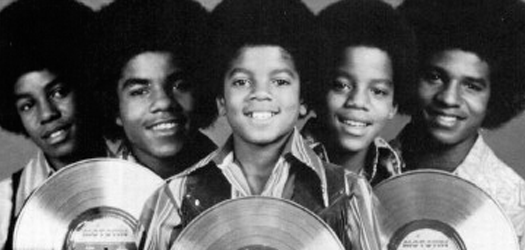 The name Deke Richards may not strike you immediately if you’re not a Motown fanatic. But if you’ve got any love for the works of Michael Jackson and The Jackson 5 (and, of course, if you read this site, surely you must), the news of Richards’ passing is indeed a bittersweet note.
The name Deke Richards may not strike you immediately if you’re not a Motown fanatic. But if you’ve got any love for the works of Michael Jackson and The Jackson 5 (and, of course, if you read this site, surely you must), the news of Richards’ passing is indeed a bittersweet note.
Richards, born Dennis Lussier, was one-quarter of two of Motown’s most famous songwriting collectives in the post-Holland-Dozier-Holland era. First there was The Clan with Pam Sawyer, Frank Wilson and R. Dean Taylor; together, this foursome penned two of Diana Ross & The Supremes’ best and most mature latter-day hits, the chart-topping “Love Child,” which brazenly tackled the social taboo of raising an illegitimate child, and its Top 10 sequel “I’m Livin’ in Shame.”
As successful as The Clan were, Richards was perhaps most lauded as a member of “The Corporation™,” arguably the last great progression of “assembly line” writer-producers for the Motown label. And what clay they had to work with! Corporation members Richards, Motown head honcho Berry Gordy, Freddie Perren and Alphonso Mizell bought their A-game for a quintet of Afro’d brothers from Gary, Indiana. Jackie, Tito, Jermaine, Marlon and 11-year-old powerhouse Michael benefitted greatly from the work of The Corporation, who penned The Jackson 5’s first three singles, “I Want You Back,” “ABC” and “The Love You Save.” All three topped the Billboard Hot 100; “ABC” unseated The Beatles from the pole position.
While the tide at Motown would soon turn in favor of singular singer/songwriter/producers like Marvin Gaye and Stevie Wonder, the J5 discography remains an integral part in the understanding of ’70s pop-soul and the evolution of Michael Jackson from boy wonder to King of Pop. (It’s a legacy we’re admittedly all still unpacking, thanks to sets like last year’s double-disc anthology of J5 outtakes, Come and Get It: The Rare Pearls, which Richards produced.)
While it’s nigh impossible to pick a favorite of The Corporation’s works for Motown, in my most quiet moments I’m drawn to the yearning beauty of “Maybe Tomorrow,” which boasts fiery leads from Michael and Jermaine (not to mention heavenly backing vocals from the other brothers) and a dizzying arrangement that marries the label’s staple lush orchestral sweeteners with a dizzying Eastern flavor. Today, it seems like a fitting tribute to a man who helped usher in such beauty into R&B and soul. A fond, bittersweet farewell to Deke Richards, and a solemn thanks for the music he helped create.
